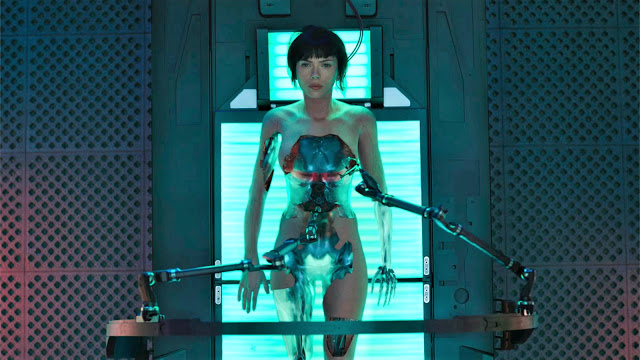Ghost in the Shell: All That Glitters Is Not Code
Is Scarlett Johansson superhuman? In recent years, the one-time ingénue from Lost in Translation has played an assortment of otherworldly women who fit the bill—the sociologically curious alien of Under the Skin, the cerebrally enhanced anomaly of Lucy, the preternaturally gifted warrior of the Avengers films. (The only foe whom Black Widow can’t seem to conquer is the studio that refuses to green-light her own franchise.) But even beyond her portrayals of these exceptional characters, Johansson herself has demonstrated an uncanny, seemingly inhuman ability to dig, well, under the skin, to invest her fantastical creations with quiet longing and simmering grief. That talent proves crucial to Ghost in the Shell, yet another futuristic flick about a faux-human figure wrestling with the concept of her own identity. On the page, the film’s heroine is a fascinating but familiar archetype. Johansson makes her a character.
Good thing, too. Repurposed from the hit Japanese anime from 1995, Ghost in the Shell is a brisk and surprisingly contemplative affair, but it doesn’t have much original to say about the (in)human condition. It’s easy to perceive its central story—set in a glossy dystopia where man and machine have melded—as a greatest-hits compendium of classic science-fiction cinema. There’s a dash of the chilly aesthetic of Blade Runner, a pinch of the caustic irreverence of RoboCop (though lacking the broad comedy of The Fifth Element), a heaping of the cyberpunk chic of The Matrix. Yet despite its composite nature, the dark and sleek universe of Ghost in the Shell still manages to look and feel reasonably novel. It borrows, but it doesn’t steal. Read More

